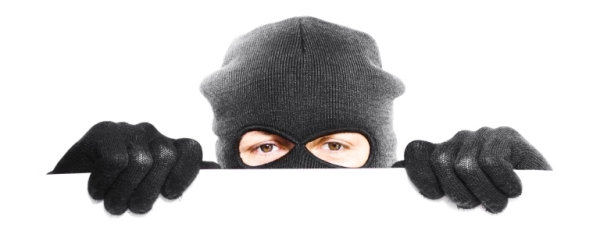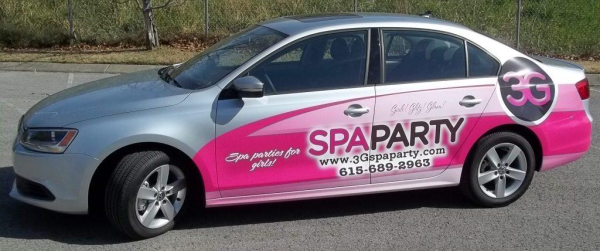Let me start out by saying that we at 12-Point SignWorks are ALL FOR auto wrap advertising! It's a great way for companies to advertise their business. Studies have shown that consumers remember and retain information displayed on vehicle wraps before any other type of signage. Wraps and graphics are also some of the most cost-effective types of signage because they give you the best return on your marketing investment. You're only paying a few cents per potential customer for every thousand people that see your wrap! Unfortunately, however, there are those who use the awesome potential of vehicle wraps to prey on people who are going through financial difficulties or who are looking for work. We wrapped a car a while ago for a company, and scam artists have been using the picture of the wrapped car without our permission to trick people into giving up money and personal information. We hate that our work is being misused in this way! Here are some red flags to look out for and how to avoid getting scammed.
 Be safe online! Don't let the thieves and scam artists get to you!
Be safe online! Don't let the thieves and scam artists get to you!
Flag 1. Companies seek you out and offer you lots of money to advertise on your car: It may be tempting to believe you can make 400 to 600 dollars a week driving your car around for another company, but most of the legitimate companies that did this went out of business in the late 1990s. Many of these auto wrap scam artists approach people on websites like Craigslist because they can easily access your email address if you post anything on there; for example, posting an apartment for rent or trying to sell old furniture. Good rule of thumb: if someone contacts you through Craigslist or any other online market for something other than what you had originally posted, do not respond.
Flag 2. Really well-known, big name companies are approaching you through Craigslist: Scammers (is that a word? I think it should be.) can be really smart—that's how they make their money! Many will use big names like Coca-Cola, Rockstar, Monster, Heineken, and more without permission to make it seem like they are legitimate companies approaching you. Pepsi, Coke, and any other big name company will not randomly solicit people to market their product through the internet. They just won't. Right now, it seems like many scam artists claim to be energy drink companies, so watch out for that!
Flag 3. The company asks you to wire them money or send a money transfer to cover "wrap costs": No legitimate companies will ask you to wire them money. Ever. The way many of these con artists work, is they say that if you get an advertisement wrapped on your car they will pay you between 400 and 600 dollars a week. They first send you a really large check (usually several thousand dollars) for you to cash. After you cash the check, they expect you to wire a large portion of the money back to them to "pay for the wrap and graphic design fees." After wiring the money, many victims have discovered that the check was phony and now they are out hundreds or thousands of dollars and in trouble with the bank.
 This is the car we wrapped that is being used by scam artists. Don't trust any people online who try and get you to cash a check or get your car wrapped for money using this picture!
This is the car we wrapped that is being used by scam artists. Don't trust any people online who try and get you to cash a check or get your car wrapped for money using this picture!
Flag 4. A company sends you a check before you perform any work or sign any agreements: If one of these "advertising" companies sends you a check or money order in the mail, you should probably throw it away. As previously mentioned, some will use fake checks to get you to wire them money, but others will even use the deposit you make using a check to get your bank account information. If you are really curious about whether or not the company is legitimate, take the check to your local bank to get it looked at. Some scam artists have become very good at faking checks and will include even small details like watermarks. Our advice is much the same as the kind we would give in regard to the three-week-old lunch meat calcifying in the back of your fridge: "when in doubt, throw it out."
So, what can you do if you are approached by what appears to be a scam artist?
- Be smarter than the bad guys! If you feel uncomfortable or suspicious about the way they are approaching things, trust your gut and investigate.
- Do your homework. Usually even a little digging into the company shows that it either doesn't exist or that its name is being used by scam artists without its permission.
- Save all the communication and documentation between you. If you went so far as to actually receive and even cash a check from one of these companies, report it to your local authorities. You can also file a complaint with the Federal Trade Commission at: ftc.gov/complaint. The more information you have to give them, the easier it will be to catch the person who scammed you.



Leave a Reply